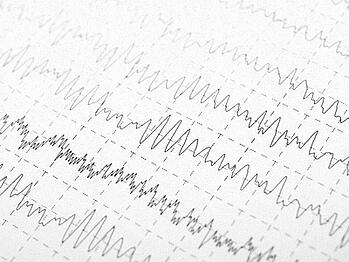Published on: June 2, 2015
 If you suffer from epilepsy or know someone who does, you’re aware of the issues and the pain that it brings to families and friends of those who suffer. At any moment, an epileptic person could have a seizure and lose focus, awareness, or control of his/her body.
If you suffer from epilepsy or know someone who does, you’re aware of the issues and the pain that it brings to families and friends of those who suffer. At any moment, an epileptic person could have a seizure and lose focus, awareness, or control of his/her body.
The effects are both terrifying and emotionally painful, as the loss of awareness can bring about confusion about what occurred (or, in the case of a simple partial seizure, the awareness of the twitching and jerking of a limb can be shocking to both observers and the person who is suffering.) If you suffer from these symptoms and you find that the unpredictability and severity of your seizures are too overwhelming for you to continue to work, you might find it comforting to know that you’re not alone, and that there is hope: disability insurance is available to those who suffer from epilepsy, so long as the condition meets the requirements set out for it.
What is Epilepsy?
Epilepsy is, in short, a brain disorder caused by alterations to the brain tissue that cause the brain to become easily excited, which in turn creates seizures from the over-excitation. People who have epilepsy know full well the powerful effects of this disease. The seizures are debilitating (some more than others) and create a general sense of fear in the person who is suffering from the disorder.
There is some good news, though, because epilepsy is in the Social Security Administration’s (SSA) Blue Book as a qualified disorder. To qualify, though you must have:
- Seizures once a month or more that are not controlled by three months’ medication or therapy
- Daytime seizures involving loss of consciousness or convulsions OR nighttime episodes that have residual debilitating effects during the daytime.
These are the qualifications for the forms of epilepsy that involve major seizures. However, if you have non-convulsive episodes, you may still qualify. The requirements for this are close to the same:
- Seizures once a month of more that are not controlled by three months’ medication or therapy
- Alteration of awareness, loss of consciousness, or transient postictal manifestations (aftereffects of the seizure such as nausea, confusion, headaches, and so forth) that affect your every day function.
These are terrible conditions to have to suffer under. Whether the episodes are convulsive or non-convulsive, the effects are to create a lack of focus and inability to perform regular actions. This is dangerous to both yourself and others if you suffer from the disease (such as having an epileptic episode while driving).
Auras and other Symptoms
You may also find that you notice the “aura” (or a feeling that forewarns you that you’re about to have a seizure). This must be documented in the diagnosis for the SSA as well as any bodily control issues, such as tongue bites, injuries resulting from the seizures, and even loss of bowel control. The SSA must be aware of all aspects of the condition for them to return any form of aid, and every detail helps.
As we’ve said before, it’s a scary prospect to be diagnosed with epilepsy. A lot of people live normal, wonderful lives in spite of this medical condition. However, sometimes you just can’t work. Be aware that the condition can definitely leave you unable to do the work expected of you to survive.
If you feel that you have these symptoms or have previously applied for benefits on the basis of epilepsy and have been denied, be sure to call us here at Disability Experts of Florida. We’re here to assist with your case and get you the aid that you both need and deserve.

